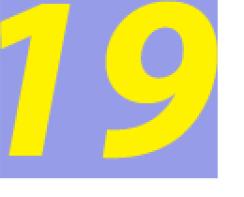
Although revenues slid, the firm maintained 40 percent profit margins. “We’ve reentered the growth space,” says Rutter, 47, that preceded the “disruption that began in September 2008.” In May average daily volume on the key electronic platforms that ICAP acquired earlier in the decade — BrokerTec (which Rutter ran before the 2003 buyout) and EBS (the foreign exchange platform purchased in 2006) — was $914.5 billion, 61 percent higher than in May 2009. Last year electronic broking supplied 35 percent of operating profits, versus 59 percent from voice and 6 percent from information.
The biggest sources of revenue: Europe and emerging markets. ICAP boasts 3,000 traders representing 800 institutions in more than 50 countries. Rutter likes the firm’s prospects if over-the-counter trading becomes more tightly regulated, because of the transparency and audit trails inherent in its systems. “We capture every single keystroke,” he points out.
Return to the 2010 Tech 40 Index




